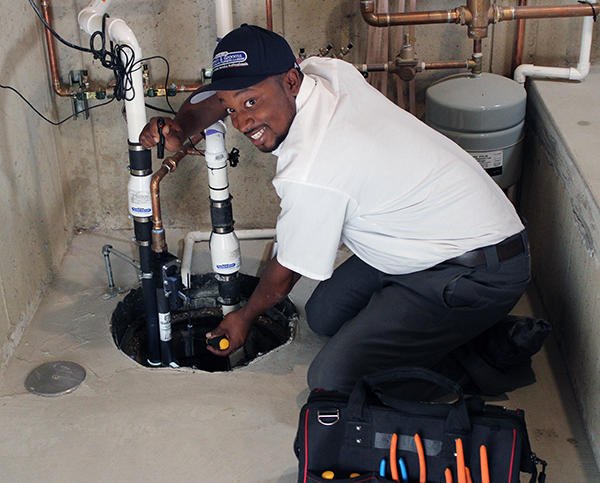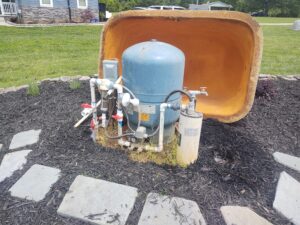Recognizing the Trick Components of Effective Water Filtering Systems

Importance of Water Filtering Equipment
Water filtration systems play an essential duty in making sure access to tidy and safe drinking water by effectively removing contaminants and contaminations. These systems are crucial in dealing with the expanding concerns over water quality and the potential wellness dangers connected with consuming contaminated water. By making use of different filtering systems such as reverse osmosis, activated carbon, and UV sanitation, water filtering systems can effectively get rid of unsafe substances like microorganisms, viruses, hefty steels, and chemicals from the water system.
In addition, water filtration systems help to enhance the preference and smell of water by removing chlorine, debris, and other toxins that can affect its high quality. Water Treatment. This improvement in water top quality not only makes it more palatable but likewise encourages people to consume a sufficient quantity of water daily, promoting much better hydration and general health
Kinds Of Purification Parts

Physical filters are developed to literally stress out pollutants from the water. These filters can be made from products like ceramic, carbon, or perhaps sand, and they function by trapping particles bigger than the filter's pores as water goes through.
Chemical filters use different chemical processes to eliminate pollutants from the water. Examples include activated carbon filters, which adsorb pollutants, and reverse osmosis membranes, which utilize pressure to separate pollutants from the water.
Biological filters utilize living microorganisms like microorganisms or algae to damage down raw material and visit homepage toxins in the water. These filters are commonly utilized in wastewater treatment plants or all-natural water purification systems.
Understanding the different types of filtering parts is crucial for choosing one of the most appropriate water purification system for details purification needs.
Function of Sediment Filters
Sediment filters play an essential duty in water filtration systems by efficiently capturing solid particles suspended in the water. These filters are usually the first line of protection in a filtration system, eliminating larger bits such as sand, silt, dust, and rust before the water moves via finer purification stages. By trapping these sediments, the filters prevent them from reaching downstream elements, hence extending the life expectancy and performance of the entire system.
Neglecting this upkeep can lead to obstructing, reduced water flow, and jeopardized purification effectiveness. In general, debris filters are vital elements that contribute dramatically to the effectiveness of water purification systems.
Role of Turned On Carbon Filters
Playing an important duty in water purification systems, activated carbon filters are crucial in removing impurities and contaminants from the continue reading this water supply. As water passes with the filter, the triggered carbon holds and attracts onto the contaminations, ensuring that the water that comes out on the various other side is cleaner and safer for usage.
Activated carbon filters are extremely reliable at enhancing the preference and smell of water by lowering chemicals that can affect its high quality. Due to their convenience and reliability, triggered carbon filters are a crucial element in making certain that water is detoxified to the highest possible criteria prior to getting to customers.
Understanding Reverse Osmosis Systems
Reverse osmosis systems are sophisticated water filtering systems that use a sophisticated process to eliminate contaminants and pollutants from alcohol consumption water. These systems function by applying pressure to the water, forcing it through a semi-permeable membrane layer. This membrane functions as a barrier, enabling only distilled water particles to travel through, while obstructing bigger particles such as minerals, chemicals, and other impurities. Therefore, the water that appears on the other side is dramatically cleaner and much safer for intake.
One key benefit of reverse osmosis systems is their ability to eliminate a large range of contaminants, including hefty steels, dissolved germs, infections, and solids. This makes them very effective in boosting the total quality and security of drinking water. Furthermore, reverse osmosis systems are fairly low-maintenance and can be mounted under the sink or in a main purification system, offering hassle-free access to clean water throughout the house. Generally, recognizing how reverse osmosis systems function can aid people make informed decisions about their water filtration needs.
Verdict
In conclusion, reliable water purification systems are vital for making sure clean and safe drinking water. By recognizing the function and duty of each component, people can make informed choices when selecting a water filtering system.
Water purification systems play a critical role in making sure access to clean and secure alcohol consumption water by effectively eliminating contaminants and pollutants. By using numerous filtration systems such as my sources reverse osmosis, turned on carbon, and UV sterilization, water filtration systems can effectively remove hazardous compounds like microorganisms, viruses, heavy metals, and chemicals from the water supply.
Debris filters play a crucial role in water filtering systems by properly recording solid bits suspended in the water (Water Filtration Systems).Playing a vital duty in water filtration systems, activated carbon filters are important in eliminating pollutants and pollutants from the water supply.Reverse osmosis systems are innovative water purification systems that use an innovative process to remove contaminants and impurities from drinking water